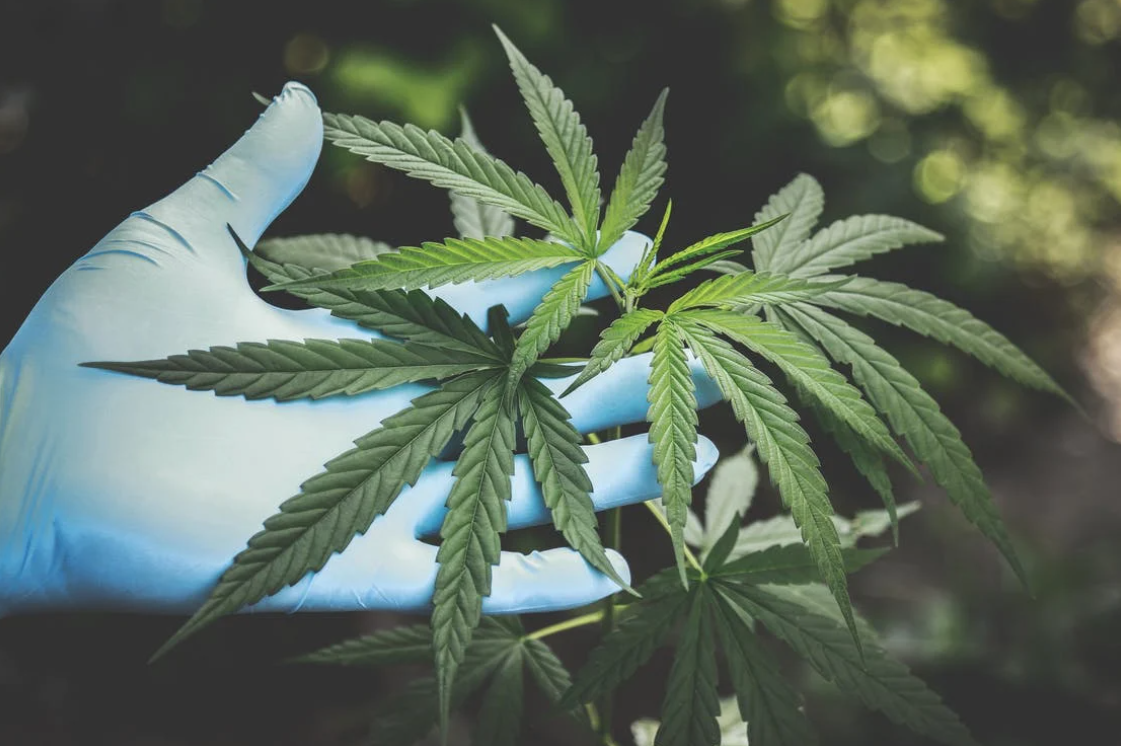Cannabis Drug Interactions, Everything You Need To Know

Throughout the last few decades, we’ve seen a rise in medical cannabis being used for a vast assortment of health conditions.
While cannabis doesn’t usually treat these conditions, it has a fundamental tool in reducing specific symptoms, such as pain and stress.
This relief comes from cannabinoids found in the cannabis plant - the two most notable being tetrahydrocannabinol (THC) and cannabidiol (CBD). These cannabinoids - along with terpenoids, flavonoids, and other phytonutrients - are what’s often looked into when concerning ourselves with cannabis drug interactions.
As of this time, we only know so much about the safety of individual cannabinoids, and very few serious adverse effects have been reported. Furthermore, marijuana’s medical benefits have been observed in lower doses - making harm and toxicity from the plant much less likely.¹Throughout this article, we will take a deeper look at cannabis drug interactions and what you should be aware of.
The Role of Cannabis Application
As discussed, drug interactions will occur depending on the chemical profile of a cannabis product, more specifically, which cannabinoids are found within that product.
However, administration forms also play a role in how cannabis interacts with other drugs and the body. The most common cannabis consumption methods include:
- Inhalation - By smoking or vaping herbal cannabis, resin, or concentrates.
- Oral - Prescription cannabinoids (i.e., Epidiolex), edibles, tinctures, or capsules.
- Oro-mucosal or sublingual - By specific cannabis edible products (i.e., lollipops, lozenges, nabiximols)
- Topicals - By creams, salves, and other skin applicationsWhile not true for all, many of these products incorporate other ingredients that certain users may respond to differently. For example, a cannabis edible may contain ingredients you’re allergic to, or a cannabis topical may have adverse reactions on certain skin types.
Due to these specific complications, it’s in your best interest to consult your doctor before consuming a cannabis product and discussing potential adverse effects.

Common Cannabis Side Effects
Most people who consume cannabis are well aware of the psychoactivity it induces. Naturally, this comes with a string of other side effects that are sometimes found in non-psychoactive cannabinoids (such as CBD). The most common cannabis side effects include:²
- Anxiety
- Altered sense of time
- Ataxia
- Bronchitis
- Changes in visual perceptions
- Cough
- Decreased eye blink rate
- Decreased sperm count
- Dizziness
- Dry mouth
- Dysphoria
- Reddened eyes
- Reduced coordination
- Reduced tear flow
- Sedation
- Slowed pupillary response to light
These effects are mostly mild, especially if users are taking doses recommended by the company. However, these side effects can have other adverse reactions in the body on occasion. For example, if you already struggle with bronchitis, it’s likely inhaling cannabis herb is only going to worsen your condition.On occasions, cannabis can have unintended side effects. For example, due to sedation and dizziness, one may find it challenging to operate a motor vehicle - putting them at risk of fatal injury.Finally, long-term cannabis use may have health consequences that aren’t immediately observable. For example, while it’s been observed that cannabis may help reduce cancer symptoms (or those associated with cancer treatment), long-term smoking can release harmful toxins and carcinogens (cancer-causing chemicals) into the body.³
Cannabis Metabolism and Its Interactions with Isozymes
To better understand potential drug interactions caused by cannabis, it’s crucial to know how cannabinoids break down in the body. THC and CBD, the most common cannabinoids, are metabolized by the isozymes CY3A4 and CYP2C9.4There are a number of medications out there that similarly require these isozymes to both metabolize and produce effects. These medications include, but aren’t limited to:
- Chlorpromazine
- Clozapine
- Cyclobenzaprine
- Duloxetine
- Haloperidol
- Naproxen
While there haven’t been studies to indicate such activity, it’s theorized that THC may decrease serum concentrations of these medications as it induces CYP1A2.
On the other hand, CBD is a potent inhibitor of CYP2A4 and CYP2D6. In turn, it may increase serum concentrations of the following:
- Antidepressants
- Antihistamines
- Antipsychotics
- Antiretrovirals
- Benzodiazepines
- Beta-blockers and opioids (including codeine and oxycodone)
- Calcium channel blockers
- Cyclosporine
- Haloperidol
- Macrolides
- Sildenafil (and other PDE5 inhibitors)
- Some statins (atorvastatin and simvastatin)
- SSRIs
- Tricyclic antidepressants
Other Cannabis Drug Interactions
A few other studies have indicated that cannabis may interact with the following:
- Alcohol - One study indicated that alcohol may increase THC levels.6•Clobazam - While typically used to help control seizures (convulsions), some studies indicate CBD can increase clobazam levels in children.7
- Theophylline - One study indicated that smoking cannabis caused a decrease in theophylline levels.8
- Warfarin - An anticoagulant often used in the treatment of thrombosis, THC and CBD have been found to increase warfarin levels.
As the above information indicates, cannabis’ interaction with drugs is minimal, with no reports of serious consequences when taken alongside other medications. Naturally, many of these studies looked into the short-term effects - therefore, long-term cannabis use alongside specific medicines isn’t clear.
Cannabis and Its Interactions with Specific Health Conditions
Schizophrenia is a good example. While cannabis doesn’t directly cause schizophrenia, it can worsen the condition in individuals already diagnosed or susceptible to it.10Speaking of mental illness, some research suggests cannabis may increase the risk of depression.
However, these studies aren’t conclusive, as other research indicates cannabis doesn’t cause depression. Instead, those with depression are already more likely to consume cannabis.¹¹This is the biggest issue with current cannabis research - we only know so much. Since most studies remain in preliminary stages, there’s a lot we still don’t know about cannabis and how it impacts our health.
Most scientists agree that long-term cannabis use will affect our cognitive function (i.e., prospective memory and executive function). In turn, this may create irreversible cognitive impairments.
Especially if long-term cannabis consumption begins at an early age (adolescence).¹²However, whether or not cannabis has detrimental effects on physical health conditions remains unclear. Since there have been no reports of fatal marijuana overdoses, it’s safe to assume that cannabis is safe to consume for most conditions.
Still, being the lack of research, we can’t say this conclusively. If you’re currently struggling with a specific health condition, we recommend seeking out studies concerning cannabis and your ailment. Chances are you’ll find something on the subject, even if the results are slim.
Final Word
When it comes to drug interactions and cannabis, there isn’t too much to concern yourself with. While THC and CBD do have specific drug interactions, they are so minor that they won’t damage your body.
Still, if you’re taking a specific medication, it’s worth consulting your doctor on whether cannabis products benefit you. As mentioned, THC may decrease serum concentrations of certain medicines (such as Clozapine) and, therefore, make your treatment less effective.
As we also discussed, cannabis may help or harm the medical condition you’re struggling with. Beyond drug interactions, it’s important to seek out the research performed using cannabis on specific medical conditions.
Written and Published By Paul James in Weed World Magazine issue 156
Image: Pexels















Please complete your information below to login.
Sign In
Create New Account